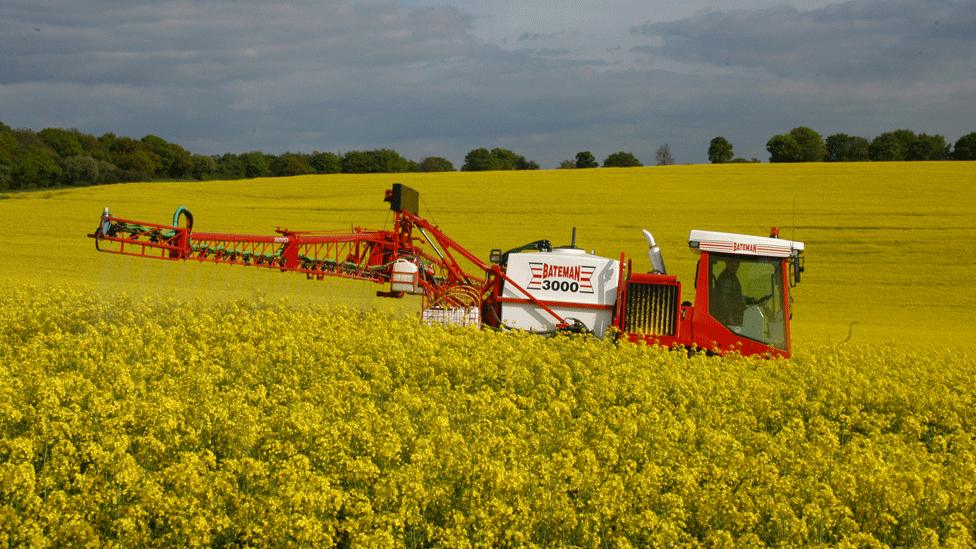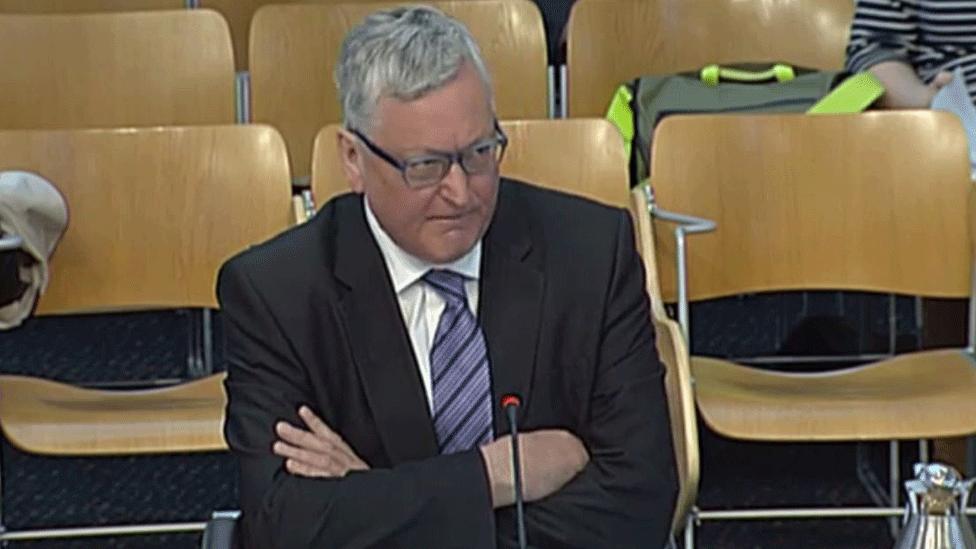More cash needed to fix problematic farm subsidy IT system
- Published

Payments to farmers in Scotland were delayed because of flaws in the new IT system
More needs to be spent fixing a problematic IT system paying subsidies to farmers, says Audit Scotland.
The £178m Business and Change Programme led to delayed and missed payments to hundreds of farmers.
Auditors warn the Scottish government, external could still be fined up to £60m over the fiasco.
The Rural Affairs Secretary, Fergus Ewing, said improvements had been been made and a new senior management team was now overseeing the system.
The Audit Scotland report said the IT programme still presented "significant risks and costs for the Scottish government."
The system was introduced to bring payments into line with reforms to the European Common Agricultural Policy (CAP).
The report acknowledged that the application process for subsidies had improved, but warned that there were still problems making payments.
Perhaps most concerning was the claim that there was "not yet a fully developed or tested plan for recovering the systems in the event of a breakdown."
'Highlighting the problem
The report also acknowledged that a loan scheme announced by ministers, got money to farmers more quickly, but said payment delays in 2016 meant some loans took longer to recover than planned.
According to NFU Scotland, there are 1,700 farmers still awaiting payments for the 2015 Less Favoured Areas Scheme, totalling £12m.
Another £6m from the 2016 Hill Sheep schemes has also not been paid.
Andrew McCornick, president of NFU Scotland, said change was needed.

Rural Economy Secretary Fergus Ewing acknowledged there was more for the government to do on the issue
"For three years, we have been highlighting the problems of the IT system," he said.
"Several loan schemes have been won by NFU Scotland and put in place to bypass the IT system and deliver much needed funding to farms and crofts.
"But we know that the loans don't work for everyone.
"While loans ensure the majority get some assistance, the only way to ensure that everyone gets what they expect and need is to fix the IT system.
"This report clearly shows that the system still requires much work and cost to get it up to the standard that we want and expect."
'Significant improvement'
There has been speculation that a drop in support for the SNP in areas like the north east at recent elections was down to the failures over payments.
The Scottish government's former rural affairs secretary, Richard Lochhead, stepped down after months of criticism over the IT system's problems.
His successor, Fergus Ewing, said: "Clearly there is more for us to do and I recognise that we are not there yet, but I welcome that this updated report from Audit Scotland recognises a range of improvements that have been made and reinforces the actions we have taken since last May.
"We will consider the findings carefully in the context of the significant improvement activity already under way.
"However, it is disappointing that overall the key points do not fully reflect all the progress made.
"In particular, some of the conclusions reached bear further scrutiny. For example, the loan schemes we established have been a prudent measure and have offered positive benefits for farmers."
Reforms to the CAP were brought in back in 2014 and are worth about £4.5bn to farmers over six years.
Caroline Gardner, auditor general for Scotland, said: "The challenges of building a complex rural payments system mean the Scottish government is juggling multiple demands on its time and resources. This has had an impact on its progress over the past year.
"It's crucial that knowledge is effectively transferred to staff so the system can be maintained and payments made on time for 2017.
"The Scottish government also urgently needs to fully understand the financial risk it faces, so that it can target funding at ensuring the system is compliant and secure."